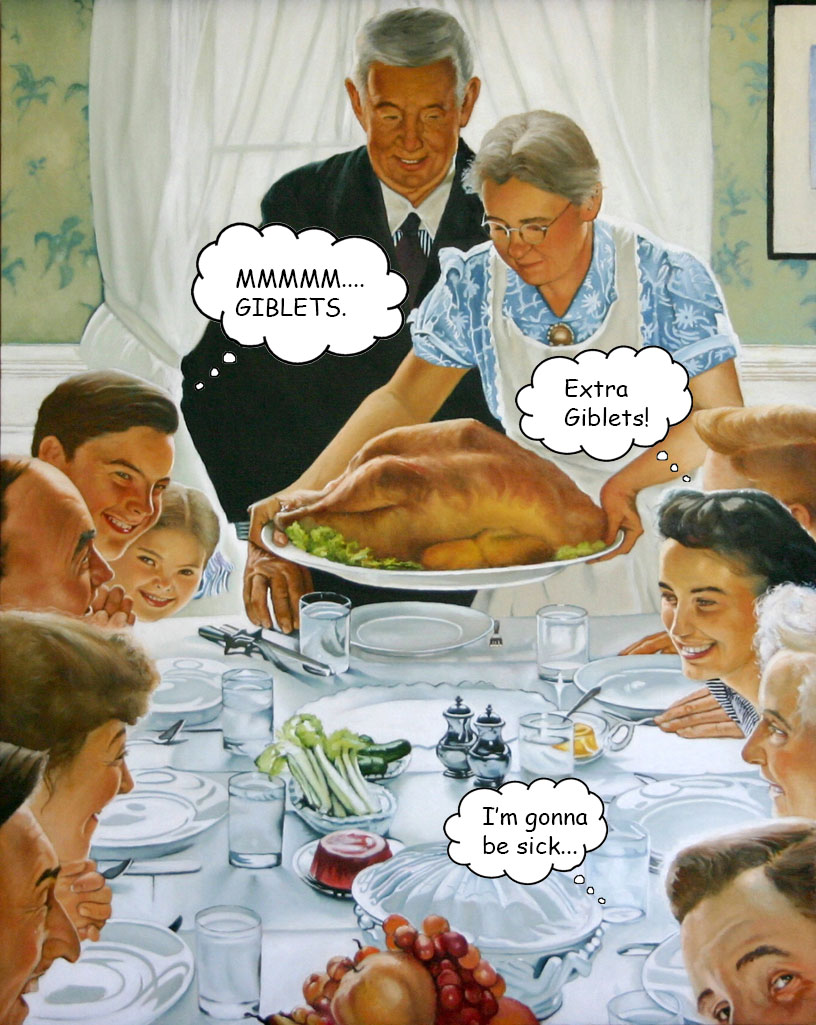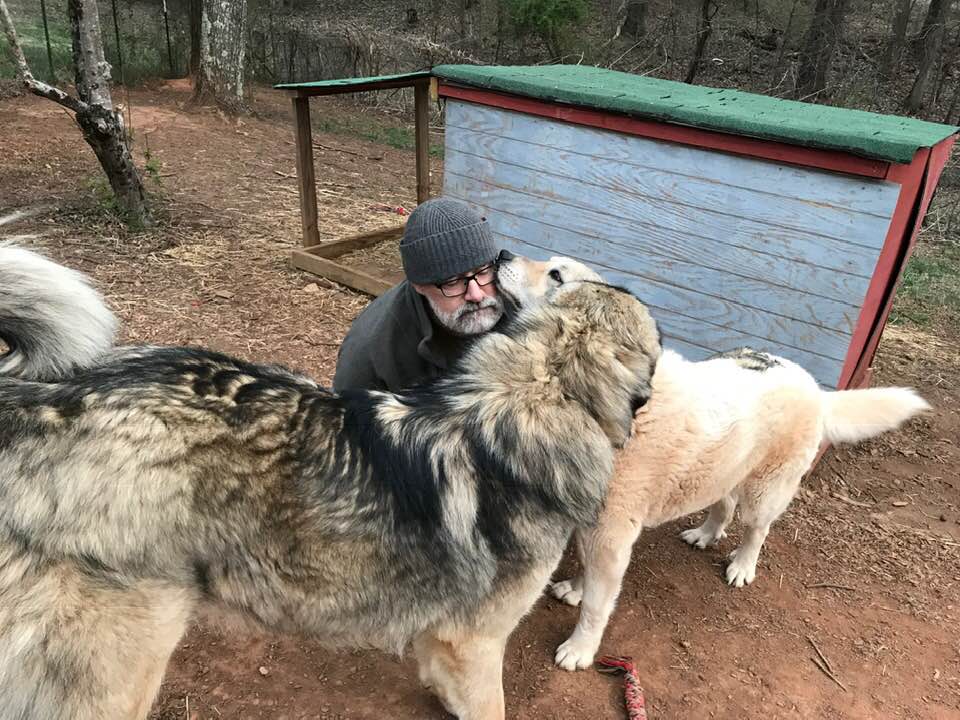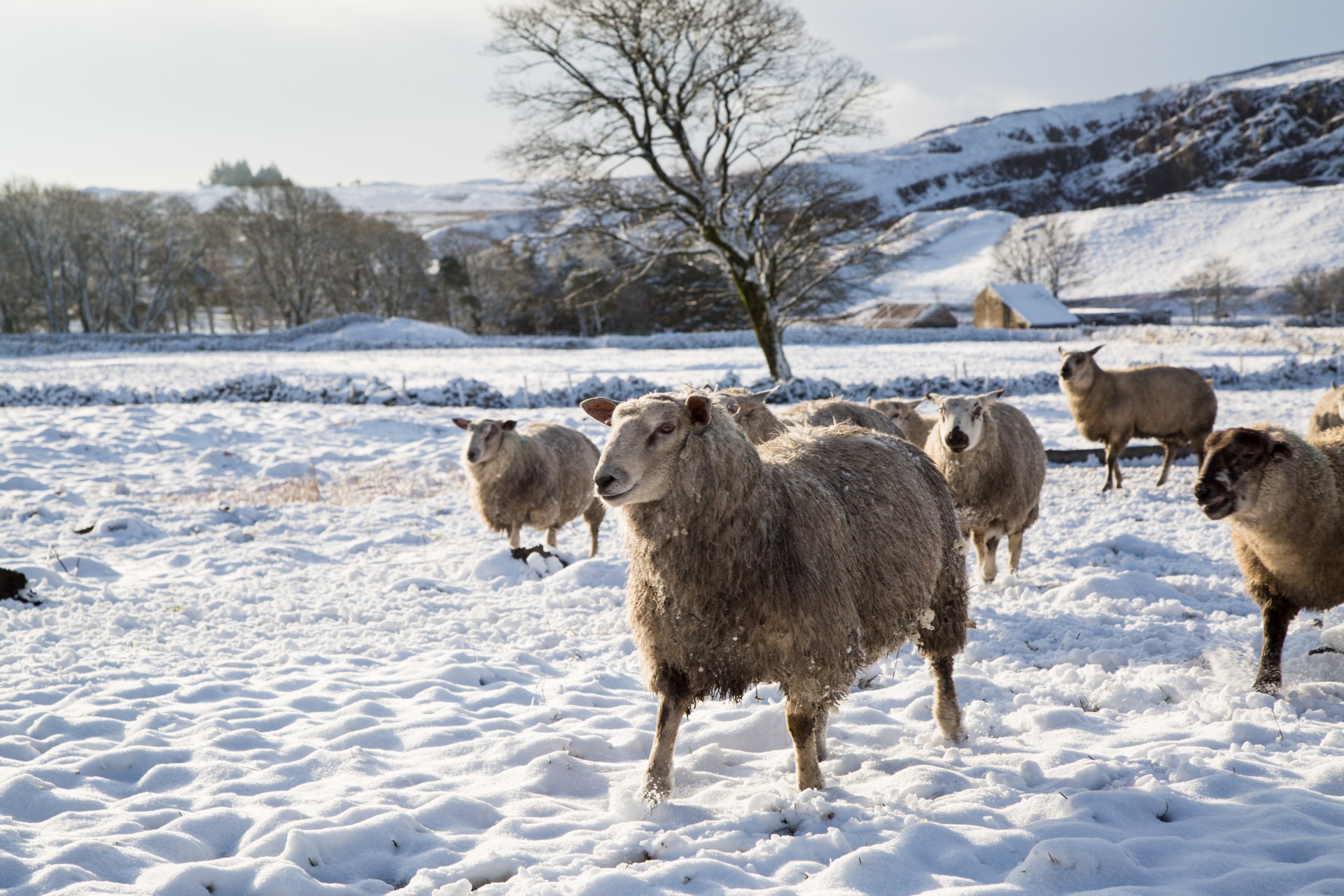 Vegetarians and Vegans beware: I’m going to focus on meat this week before Thanksgiving.
Vegetarians and Vegans beware: I’m going to focus on meat this week before Thanksgiving.
I came up with our Word of the Week while slicing liver to dehydrate as doggie treats for our farm’s enormous livestock guardian dogs. Our two Anatolians, one at 100 pounds and the other pushing 200, eat a lot, but they earn their treats by keeping predators away from our chicken run and the flock.
Next week, I will have to deal with giblets as I prepare to roast our turkey (not Turkey–that home of Anatolian dogs and worth its own entry here). We humans have hearts and livers, but what on earth is a “giblet,” anyhow? You may have had them in gravy and half-wondered, or perhaps you did not wish to know.
The OED provides an etymology dating to “Old French gibelet, apparently a stew or ragout of game.” In modern usage, only one meaning survives and as a plural, as those “portions of a goose taken out or cut off before cooking, the liver, gizzard, etc., with the pinions and feet.”
So giblets are whatever gets left over, things we Americans rarely eat. Supermarket turkeys often do not include them today, though once they were always frozen deep in the carcass of the fowl. Incidentally, giblets need not be from a turkey. For years I considered them some sort of bizarre internal organ particular to turkeys. Thus being raised a city boy!
Metaphors that have died out attest to wider use. The OED entry notes that until the late 19th Century, a “giblet” could be anyone or anything no longer of value: a leftover.
Now you must excuse your writer. I’m off to the butcher shop to get a 5-pound bag of chicken feet. They too get dehydrated for the dogs, so they protect the other chickens instead of licking their chops while they watch over them. If I’m very lucky this hunting season, I’ll be adding a deer’s heart and liver to the dogs’ menu. They never cease rewarding me for their treats, a good thing: the male is a lot bigger than I am!
Whether you’ve stuck with me despite your upcoming Tofurkey feast or whether you, like Joyce’s Leopold Bloom, eat “with relish the inner organs of beasts and fowls” I wish you all a delightful Thanksgiving, the last non-commercial holiday on our calendar.
I suppose Black Friday does not count, though that too merits a post.
Please send us words and metaphors useful in academic writing by e-mailing me (jessid -at- richmond -dot- edu) or leaving a comment below.
See all of our Metaphors of the Month here and Words of the Week here.


